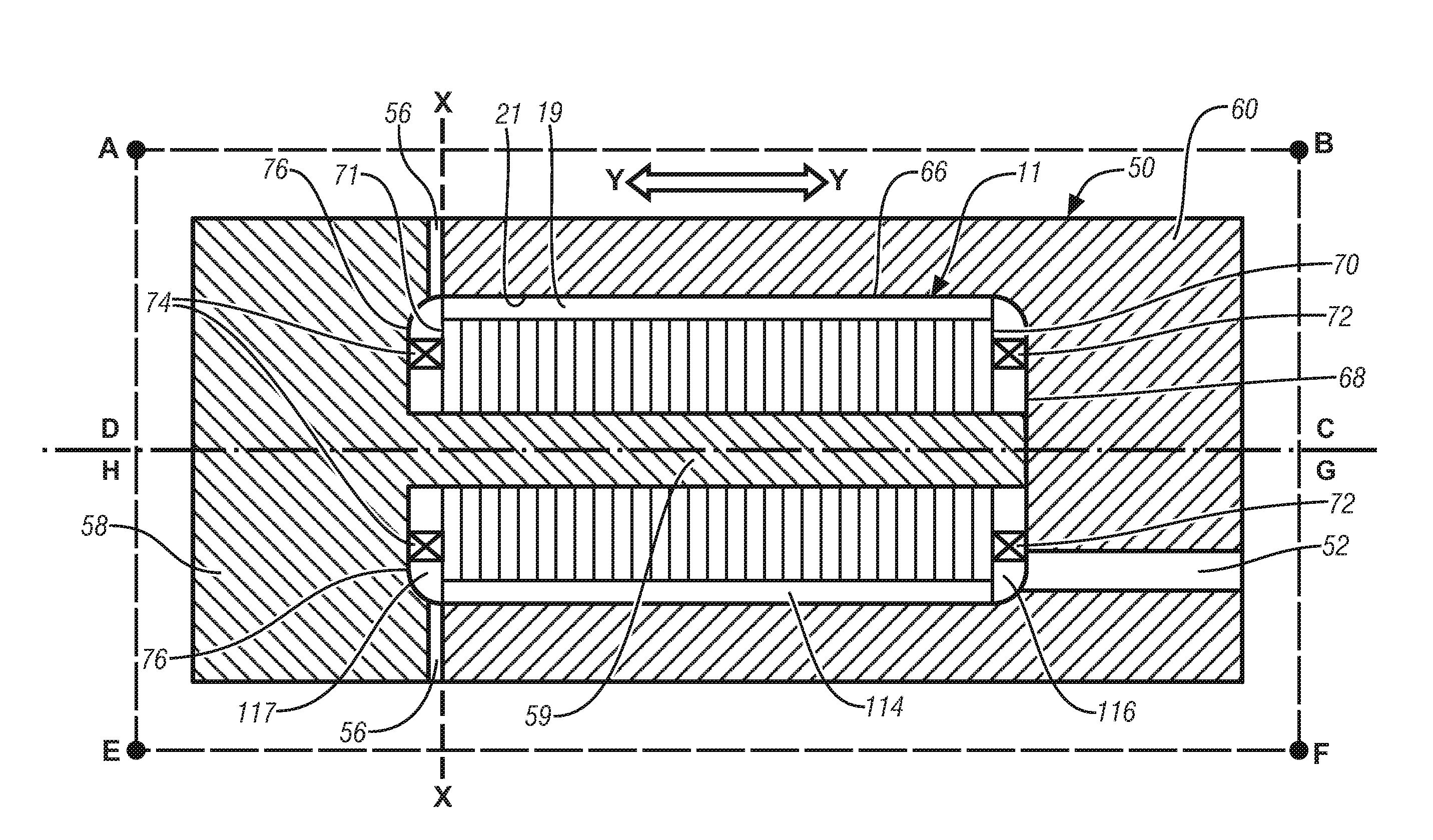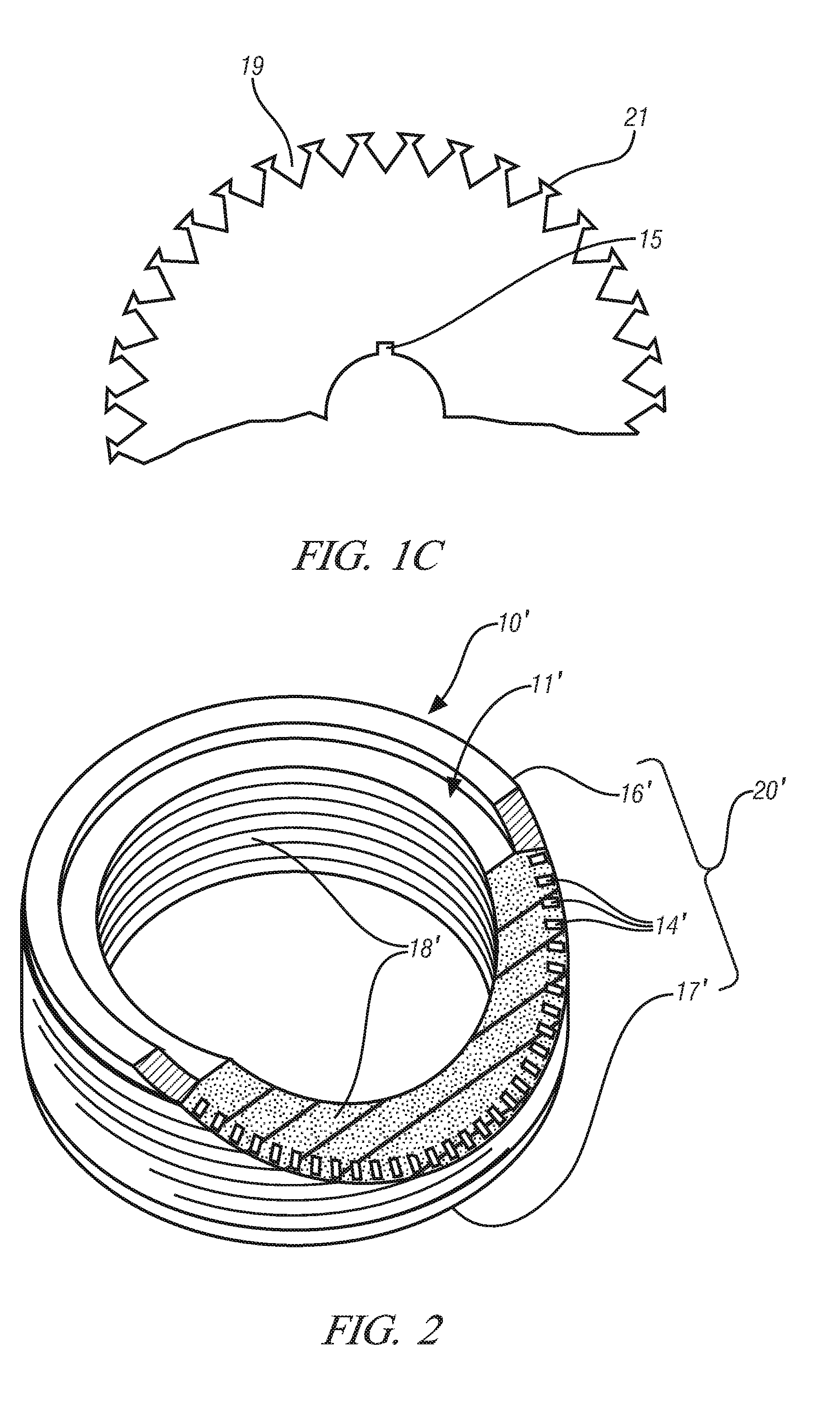Centrifugally-cast shorted structure for induction motor rotors
a technology of induction motor and shorted structure, which is applied in the direction of synchronous motor, foundry pattern, moulding apparatus, etc., can solve the problems of reduced process yield and lower than the optimal shorted structure, and achieve high production rates
- Summary
- Abstract
- Description
- Claims
- Application Information
AI Technical Summary
Benefits of technology
Problems solved by technology
Method used
Image
Examples
Embodiment Construction
[0023]Induction motors operate through the repulsive interaction of a rotating electrically-generated magnetic field in a stator with an induced magnetic field arising from the induced current in an arrangement of conductors positioned on the rotor. Induction motors enjoy wide application and are available in a range of configurations depending primarily on their electrical rating but influenced also by packaging constraints. Thus many variants of the motor elements exist. In particular, the rotors may exhibit pronounced differences in length, diameter etc.
[0024]In common with other motors, particularly large motors suitable for automotive application, the magnetic forces are substantial and require that any conductors be restrained and securely anchored. Thus the rotor conductors are typically not positioned on the surface of the rotor but are instead embedded, partially or completely, within the rotor so that they may be well supported by the rotor structure.
[0025]A typical rotor ...
PUM
| Property | Measurement | Unit |
|---|---|---|
| weight percent | aaaaa | aaaaa |
| size | aaaaa | aaaaa |
| size | aaaaa | aaaaa |
Abstract
Description
Claims
Application Information
 Login to View More
Login to View More - R&D
- Intellectual Property
- Life Sciences
- Materials
- Tech Scout
- Unparalleled Data Quality
- Higher Quality Content
- 60% Fewer Hallucinations
Browse by: Latest US Patents, China's latest patents, Technical Efficacy Thesaurus, Application Domain, Technology Topic, Popular Technical Reports.
© 2025 PatSnap. All rights reserved.Legal|Privacy policy|Modern Slavery Act Transparency Statement|Sitemap|About US| Contact US: help@patsnap.com



